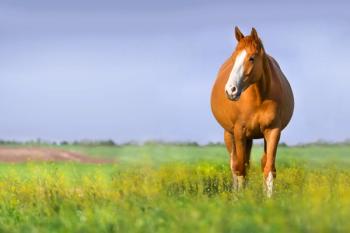
EEE Outbreak in Wisconsin
Eau Claire, Wis.- Following news that 18 horses in northwestern Wisconsin recently died from a suspected Eastern equine encephalomyelitis (EEE) outbreak, Dr. Robert Ehlenfeldt, Wisconsin's assistant state veterinarian, blames insufficient vaccination.
Eau Claire, Wis.- Following news that 18 horses in northwesternWisconsin recently died from a suspected Eastern equine encephalomyelitis(EEE) outbreak, Dr. Robert Ehlenfeldt, Wisconsin's assistant state veterinarian,blames insufficient vaccination.
That may be at least one reason why the state hasn't seen an outbreakto this degree in 20 years, according to Ehlenfeldt.
"(Typically) here in the state office, we get a report of a singletoncase (of EEE) every couple of years," he says. "You don't hearabout encephalitis around here. People get complacent and they forget tovaccinate."
Two of the cases were confirmed as EEE on Aug. 7 by the USDA NationalVeterinary Services Laboratories and the Minnesota Department of Agriculture.The tests for West Nile virus (WNV) in both horses were negative.
According to Ehlenfeldt, all of the clinically affected horses had notbeen vaccinated for EEE, and they were pasture-kept in an area that is consideredlowlands or swamp. These conditions, combined with increased rainfall andhigh temperatures, have created a bumper crop of mosquitoes that spreadthe disease.
Officials report that the cases didn't look like WNV, Venezuelan equineencephalomyelitis, or Western equine encephalomyelitis.
Horse owners and veterinarians have been advised to vaccinate/boosterhorses for EEE in the face of this outbreak. Enhanced passive surveillancefor additional horse cases is under way, and diagnostic tests submittedfrom six additional horses with symptoms are pending.
Newsletter
From exam room tips to practice management insights, get trusted veterinary news delivered straight to your inbox—subscribe to dvm360.




